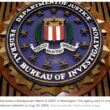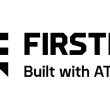Help wanted: Must know radios
Just when the water appeared to be safe, it’s time to “Catch A Wave.” The release by the 800 MHz Transition Administrator of the proposed rebanding schedule has licensees scrambling to figure out which “wave” they’re in. With a proposed start date of June 27, the time is now here to make preparations so that negotiations can go quickly and smoothly.
But the public-safety action these days isn’t confined to 800 MHz. Interoperability, E-911, 4.9 GHz implementation, 450 MHz waivers to utilize Part 22 channels, and 150 MHz rebanding (yes, there’s a group of dedicated public-safety folks trying to figure out how to pair the 150 MHz channels) are but a few of the items on the public-safety agenda these days.
Although that agenda is full, addressing it is falling on fewer and fewer public-safety officials. In the age of outsourcing, the number of government employees with radio expertise is growing thinner. As a result, there is an increasing burden on those who remain to work on the important agenda items of the day. We’re fortunate to have some incredibly dedicated and valuable people that take on these tasks, folks such as Dave Buchanan from San Bernardino County, Glen Nash from California, Steve Devine from Missouri, etc., but I bet they’d like to have some more people at the party.
Outsourcing, when done properly, can be a great thing. Looking at projects such as the Washington, D.C. 700 MHz buildout, and some of the 4.9 GHz private/public partnerships that are being created, there is a bright future for public-safety communications being able to meet the challenges of the 21st century. However, there remains a need for agencies to retain some level of expertise in-house to address both policy and implementation issues.
There seems to be an increasing recognition of the value of public-safety communications, and now there needs to be a greater recognition of the value of the folks that make these systems tick. Even outside contractors appreciate the value of having a knowledgeable radio person that works for the municipality. Assuming that it’s not a person whose sole mission is turf protection, it significantly contributes to the smooth implementation of advanced radio systems.
From a policy standpoint, having knowledgeable people that are able to tackle the important issues of the day is critical. In my years of representing trade associations, I have found it incredibly helpful to be able to call on members with expertise in various radio fields. It’s difficult to set policy for communications on a nationwide basis without the involvement of good in-house people who work for industry members and are familiar with the workings of agencies and experienced in communications needs. We shouldn’t have to rely on the same set of participants every time we need to talk about policy.
I’m not sure how we go about educating municipalities about the importance of these individuals. I do know, however, that we shouldn’t permit the situation to get any worse. When folks like Gary Gray or John Powell get to the point where they want to play golf rather than meet about interoperability standards, we all suffer.
Alan Tilles is counsel to numerous entities in the private radio, Internet and entertainment industries. He is a partner in the law firm of Shulman Rogers Gandal Pordy & Ecker and can be reached at [email protected].

















